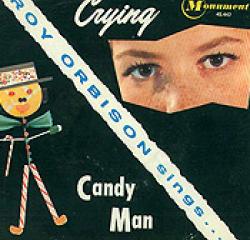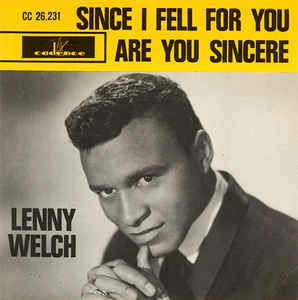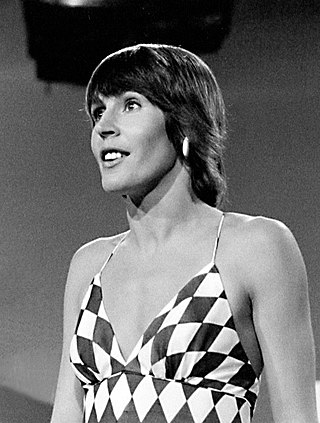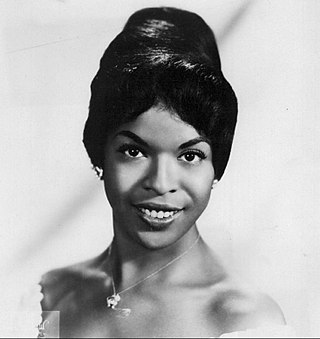Toni Fisher, also billed on her records as Miss Toni Fisher, was an American pop singer. She was known for her recordings of "The Big Hurt", "West of the Wall", "Maybe ", and "Why Can't The Dark Leave Me Alone". She was later known as Toni F. Monzello following her marriage to Henry Monzello.

"Crying" is a song written by Roy Orbison and Joe Melson for Orbison's third studio album of the same name (1962). Released in 1961, it was a number 2 hit in the US for Orbison and was covered in 1978 by Don McLean, whose version went to number 1 in the UK in 1980.
"You Always Hurt the One You Love" is a pop standard with lyrics by Allan Roberts and music by Doris Fisher. First recorded by the Mills Brothers, whose recording reached the top of the Billboard charts in 1944, it was also a hit for Sammy Kaye in 1945.

"Shop Around" is a song originally recorded by the Miracles on Motown Records' Tamla subsidiary label. It was written by Miracles lead singer Smokey Robinson and Motown Records founder Berry Gordy. It became a smash hit in 1960 when originally recorded by the Miracles, reaching number one on the Billboard R&B chart, number one on the Cashbox Top 100 Pop Chart, and number two on the Billboard Hot 100 chart. It was the Miracles' first million-selling hit record, and the first-million-selling hit for the Motown Record Corporation.

"Last Kiss" is a song written by Wayne Cochran and first recorded by Cochran in 1961 for the Gala label. Cochran's version failed to do well on the charts. Cochran re-recorded his song for the King label in 1963. It was revived by J. Frank Wilson and the Cavaliers, who took it to number two on the Billboard Hot 100 charts. Wednesday, Pearl Jam, and several international artists also covered the song, with varying degrees of success.
"Cotton Fields (The Cotton Song)" (also known as In Them Old Cotton Fields Back Home) is a song written by American blues musician Huddie Ledbetter, better known as Lead Belly, who made the first recording of the song in 1940.

"Breaking Up Is Hard to Do" is a song recorded by Neil Sedaka, co-written by Sedaka and Howard Greenfield. Sedaka recorded this song twice, in 1962 and 1975, in two significantly different arrangements, and it is considered to be his signature song. Between 1970 and 1975, it was a top-40 hit three separate times for three separate artists: Lenny Welch, The Partridge Family and Sedaka's second version. The song was also adapted into multiple languages, most notably in Italian and French.
"Lollipops and Roses" is a song composed by Tony Velona. The best-known version was a Grammy Award-winning version by Jack Jones, which was recorded and released in the fall of 1961 on the Kapp label, and which charted in 1962. The Jack Jones recording went to number twelve on the Easy Listening chart.
"The Big Hurt" is a pop song that was a hit for Toni Fisher in 1959. The song was written by Wayne Shanklin. "The Big Hurt" is notable because it featured phasing effects which at that time were rare in popular music; DJ Dick Biondi on WKBW would introduce the record as "Toni Fisher's weird one."

"I'll Never Fall in Love Again" is a popular song by composer Burt Bacharach and lyricist Hal David that was written for the 1968 musical Promises, Promises. Several recordings of the song were released in 1969; the most popular versions were by Dionne Warwick, who took it to number 6 on Billboard magazine's Hot 100 and spent three weeks topping the magazine's list of the most popular Easy Listening songs, and Bobbie Gentry, who topped the UK chart with her recording and also peaked at number 1 in Australia and Ireland, number 3 in South Africa and number 5 in Norway.

"Since I Fell for You" is a blues ballad composed by Buddy Johnson in 1945 that was first popularized by his sister, Ella Johnson, with Buddy Johnson and His Orchestra.
"Muskrat Love" is a soft rock song written by Willis Alan Ramsey. The song depicts a romantic liaison between two anthropomorphic muskrats named Susie and Sam. It was first recorded in 1972 by Ramsey for his sole album release Willis Alan Ramsey. The song was originally titled "Muskrat Candlelight" referencing the song's opening lyric.
Wayne Shanklin was an American singer, songwriter and producer. His best known compositions were "Jezebel", "Chanson D'Amour ", "Primrose Lane", and "The Big Hurt".

"Last Time I Saw Him" is a 1973 song by Diana Ross, being a composition by Michael Masser and lyricist Pam Sawyer. The track was produced by Masser and released as the first single on December 6, 1973, from her album of the same name.

The discography of American country artist Skeeter Davis contains 32 studio albums, 18 compilation albums, 59 singles, 53 lead singles, six collaborative singles, two other charted songs and two additional appearances. Davis was first one half of the duo, The Davis Sisters before embarking on a solo career with the RCA Victor label. Her second single was 1957's "Lost to a Geisha Girl", which reached the top 15 of the American Billboard Hot Country Songs chart. It was followed in 1959 by the top five country selection, "Set Him Free". The same year, Davis's debut studio album was issued on RCA Victor titled I'll Sing You a Song and Harmonize Too. Her career momentum continued to build in 1960 with two top five back-to-back singles: "(I Can't Help You) I'm Falling Too" and "My Last Date ". Both selections also climbed into the Billboard Hot 100 top 40. They were featured on Davis's second studio album called Here's the Answer. Between 1961 and 1962, Davis had top ten Billboard country singles with "Optimistic" and "Where I Ought to Be".
"Mexico" is the title of a 1961 instrumental recording by American bassist, orchestra leader, and Rockabilly Hall of Fame member Bob Moore. The song was written by Boudleaux Bryant. Moore was a noted session musician in the 1950s and 1960s who worked with Elvis Presley, Pat Boone, Roy Orbison, and Brenda Lee, among others.

Australian-American singer Helen Reddy (1941–2020), often referred to as the "Queen of 70s Pop", recorded 18 studio albums, seven of which have achieved sales of 500,000 units in the US for which they were awarded Gold certification by the Recording Industry Association of America. One of those seven, I Am Woman, eventually went Platinum by reaching sales of one million copies, and her first compilation album, Helen Reddy's Greatest Hits, was awarded Double Platinum status in 1992 for hitting the two million sales mark. The respective US and Canadian album charts in Billboard and RPM magazine each had appearances by 10 of these LPs during the 1970s.

"The Way I Want to Touch You" is a song written by Toni Tennille, which started the professional recording careers for Captain & Tennille. It was certified gold by the Recording Industry Association of America (RIAA) for sales of one million units. Captain & Tennille recorded a Spanish version, entitled "Como Yo Quiero Sentirte" which was released as a single in 1975. It was taken from the Spanish version of their debut album Por Amor Viviremos. The duo also re-recorded "The Way I Want to Touch You" in 1995 for their album, 20 Years of Romance.

As a recording artist, Della Reese has made 22 studio albums, seven live albums, two video albums, eight compilation albums and one other charted song. Of her singles, 52 were released with Reese serving as the lead artist, while two were released with Reese serving as a collaborative artist. Two additional singles were issued as promotional singles. Reese's first recording was the 1954 single "Yes Indeed". Her first studio album appeared in 1956 on Jubilee Records called Melancholy Baby. In 1957, Reese had her first chart single with the top 20 US and Australian song "And That Reminds Me". The Jubilee label issued three more studio efforts by Reese: Amen! (1958), The Story of the Blues (1959) and What Do You Know About Love? (1959).

The singles discography of Elvis Presley began in 1954 with the release of his first commercial single, "That's All Right". Following his regional success with Sun Records, Presley was signed to RCA Victor on November 20, 1955. Presley's first single with RCA, "Heartbreak Hotel", was a worldwide hit, reaching the No. 1 position in four countries and the top 10 in many other countries. Other hit singles from the 1950s include "I Want You, I Need You, I Love You", "Don't Be Cruel", "Hound Dog", "Love Me Tender", "Too Much", "All Shook Up", "(Let Me Be Your) Teddy Bear", "Jailhouse Rock", "Don't", "Wear My Ring Around Your Neck", "Hard Headed Woman", "One Night", "(Now & Then There's) A Fool Such as I", and "A Big Hunk o' Love". On March 24, 1958, Presley entered the United States Army at Memphis, Tennessee, and was stationed in Germany. He left active duty on March 5, 1960.












